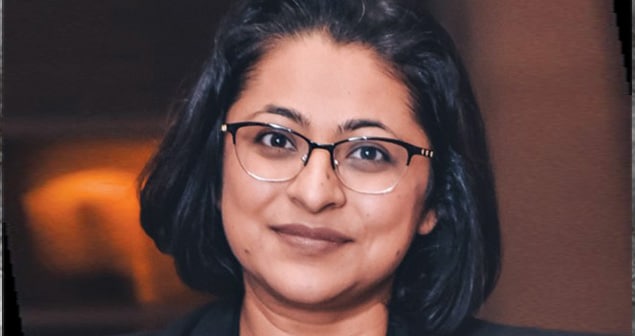- Contact Us
- +91-98111-55335
- [email protected]

Do We Need To Worry About Radiation Emitting Devices In Common Use?
August 7, 2020
Green IT And Electronics: A Need Of The Hour
August 7, 2020“We Do Not Mentor Startups, We Mentor Individuals Worthy Of Creating Startups”

Esha Tiwary, general manager, Entrepreneur First (EF), India, in an exclusive conversation with EFY’s Mukul Yudhveer Singh, sheds light on how venture capital and private equity companies function. Unlike many mentorship cohort programmes, the company focuses on individuals who are capable enough for creating startups
Q. What is the company vision with respect to innovation and helping startups in India?
A. Entrepreneur First has been present globally for around eight years. In India, we started last year in January 2019. Since then, we have had two startup cohorts. The third one is in progress right now. Our vision has always been about helping tech founders form companies. We invest in talent, which means we take in individuals who are aspiring founders but don’t have a company.
We take fifty such individuals in a cohort every six months. In the cohort, they work very closely with their co-founders, and we mentor them. For three months, they work on building the company. After that, we decide which one of these companies to invest in. Ultimately, EF is a way for individuals to find co-founders and build companies.
Q. Can someone approach you without having an idea in mind?
A. Absolutely. We evaluate people for their skills and focus on talents required to build tech companies. These tech companies need technical and business talents.
To start a company, you need a CEO and CTO. We take a whole gamut of skill sets on the go. These include individuals holding a PhD degree with niche technical skills, hackers who can build any sort of product quickly, domain experts who are business oriented with deep expertise in an industry and some general business leaders as well.
And in the cohort, we have a lot of frameworks that help them evaluate the best areas they can work on, the best co-founders for them, etc.
Q. What kind of support can individuals expect from Entrepreneur First?
A. In the first three months, which is the company building part, individuals get exposed to all the co-founders. We have ex-founders in the team who are mentors. We call them an entrepreneur investment team. They are very well-known founders from the ecosystem who work full time with EF, and they mentor all the other founders on the programme.
We also pay a stipend of 2,000 dollars per month to all fifty people. After three months, we decide to make an equity-related investment in a startup. We invest 55,000 dollars for ten per cent of the equity. And after investment, those companies go through another three months of launch programme, which is like an accelerator.
There again, they will have an Entrepreneur in Residence (EIR) and interact with external advisors who are well-known people from the industry. Then we guide them to do early traction and get early customers.
And then our final big piece comes in when they are ready for seed investments. EF exposes them to many investors in the ecosystem. We prepare them in terms of how to think about seed investing, basic material on investing, pitches, and long-term strategy.
Q. What is the duration of every cohort?
A. Our programme is typically for about six months—the first three months for company building and the next three months for acceleration.
In India, we provide support for longer periods. So, we go for at least another two to three months and then comes the investor day. After that, the funding from the first conversation with a VC takes its own time to close.
Q. What if VCs are interested in an idea but want to wait for another six months before investing?
A. When we become an investor in the company, our interests are aligned in terms of getting the startup seed funded. Formally, there is no programme support available after the end of six or eight months. But like any investor, we stay in touch and continue to introduce them to VCs and give them feedback on their product or plan of action.
Q. What all is covered in deep tech? What do cohorts work on?
A. Artificial intelligence (AI) and machine learning (ML) are the main kinds of tech we cover. More than half of our companies have some aspects of AI and ML applied to different industries. We have a vision in the robotics and nanotech fields.
We have seen aerospace tech as well. Some med-tech and biotech firms have also evolved. So, a lot of those kinds of deeply technical businesses are emerging out of EF.
Q. How do you reach out to possible individuals?
A. We have different channels. About 25 per cent of our applications are organic. People have heard about us, and they are applying to us on their own.
We are always on the lookout for smart people and those who could do well as entrepreneurs. Then we directly reach out to them.
